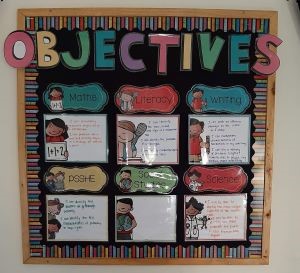Class Building: Instilling Christ-like Character in our Students
As we strive to integrate biblical principles (overtly or covertly) into what we teach, we look for opportunities to foster Christ-like behaviours in our students. Class-building opportunities allow us to do this. They also help to increase the level of student engagement and cooperative learning in the classroom, which results in an increased use of language by our students[1]. I have found that unless I take the time to create an environment that values mutual respect and acceptance through class-building activities, learning suffers and my students demonstrate more negative behaviours.
Spencer Kagan, an expert in cooperative learning, identifies five important aims of class-building: getting acquainted, forming class identity, building mutual support, valuing differences, and developing synergy.
Getting Acquainted: Often, teachers spend time at the beginning of the school year getting to know their students, but these activities should continue throughout the school year. One such activity, Inside Outside Circle, involves movement and can be used to help students get to know each other. Students stand in two concentric circles. The students on the outside face in and the students on the inside circle face out. Each student should have a partner that s/he is facing. The teacher asks a discussion question and each partner takes turn answering the question. When given a signal, the students in the outside circle move clockwise, while the students on the inside stay in their places. Each student should now have a different partner with whom to discuss the next question.
Class Identity: Encourage the class to develop a class theme, name, chant, or song. This creates a sense of unity and belonging that is unique to this class, which in turn helps to foster an environment of ownership and safety. This activity can be used beneficially across the grade levels, even though some secondary students might think it is a little bit silly.
Mutual Support: An excellent way to promote mutual support is to involve your class in a service learning/ministry opportunity. This allows students to focus their attention on a common goal such as working together to clean up the campus, collecting materials for a local ministry, or mentoring younger students. When students are moving towards a shared vision, they begin to notice the unique ways that they and others contribute to make that vision a reality.
Valuing Differences: Our intercultural classrooms are ideal for equipping our students for the increasingly global world where differences are bound to occur. Using Four Corners is an excellent way to visually see these differences in the classroom. The teacher announces a topic of comparison—for example, what type of book would best express your personality—then labels each corner of the room, each with a different book type. Students move to a corner, pair up with another student, and provide reasons for their choice. Then, each corner shares their reasons with the class. As students share their differences and the reasons behind them, they begin to recognise that differences do not have to be threatening; rather they add spice and variety to life.
Developing Synergy: Synergy refers to the expression of a whole that is greater than the sum of its parts. An easy way to foster synergy in your classroom is to have a project that involves both an individual/small group component and a class component. Examples include putting on a class play (related to your content area), creating a video documentary, or a class newsletter. The key is that the end product/outcome needs to be better than what could be accomplished by one person alone.
Fostering a classroom that embodies Christ-like characteristics creates an environment where students feel safe, are willing to explore the gifts and talents God has given them, and have opportunities to optimise language learning. It allows us to put Paul’s words[2] into action: “Don’t just pretend to love others. Really love them. Hate what is wrong. Hold tightly to what is good. Love each other with genuine affection, and take delight in honoring each other. Never be lazy, but work hard and serve the Lord enthusiastically. Rejoice in our confident hope. Be patient in trouble, and keep on praying. When God’s people are in need, be ready to help them. Always be eager to practice hospitality.”
Leighton Helwig, M.Ed.
Philippines National Director/Regional Education Specialist
TeachBeyond
Photo Credits: Conversation Ring, Katie Sutton, @MissSuttonOPC.
[1] This is especially beneficial to students learning English.
[2] Romans 12:9-13 (NLT).
Don’t miss an opportunity to deepen your understanding of Transformational Education
This summer TeachBeyond is hosting a Transformational Education Conference in Manila, Philippines, and today’s OnPractice author, Leighton Helwig, is one of our featured speakers. Spend four days (June 7-10) with other international workers learning how to apply the concepts of transformational education to your specific context. This is an opportunity that is too great to pass up!
For more information or to register for the conference, visit teachbeyond.org/teachbeyond-conference/.





